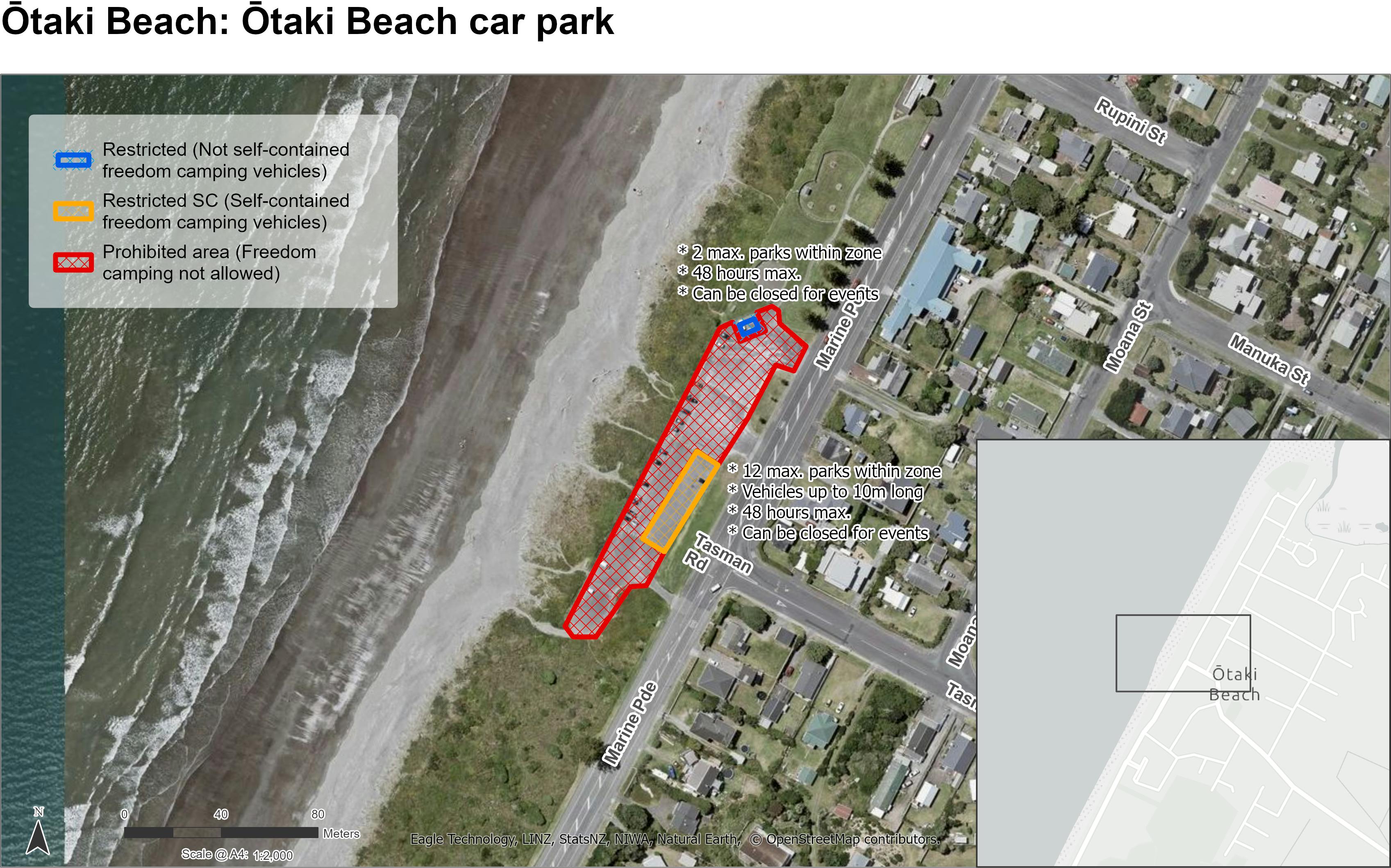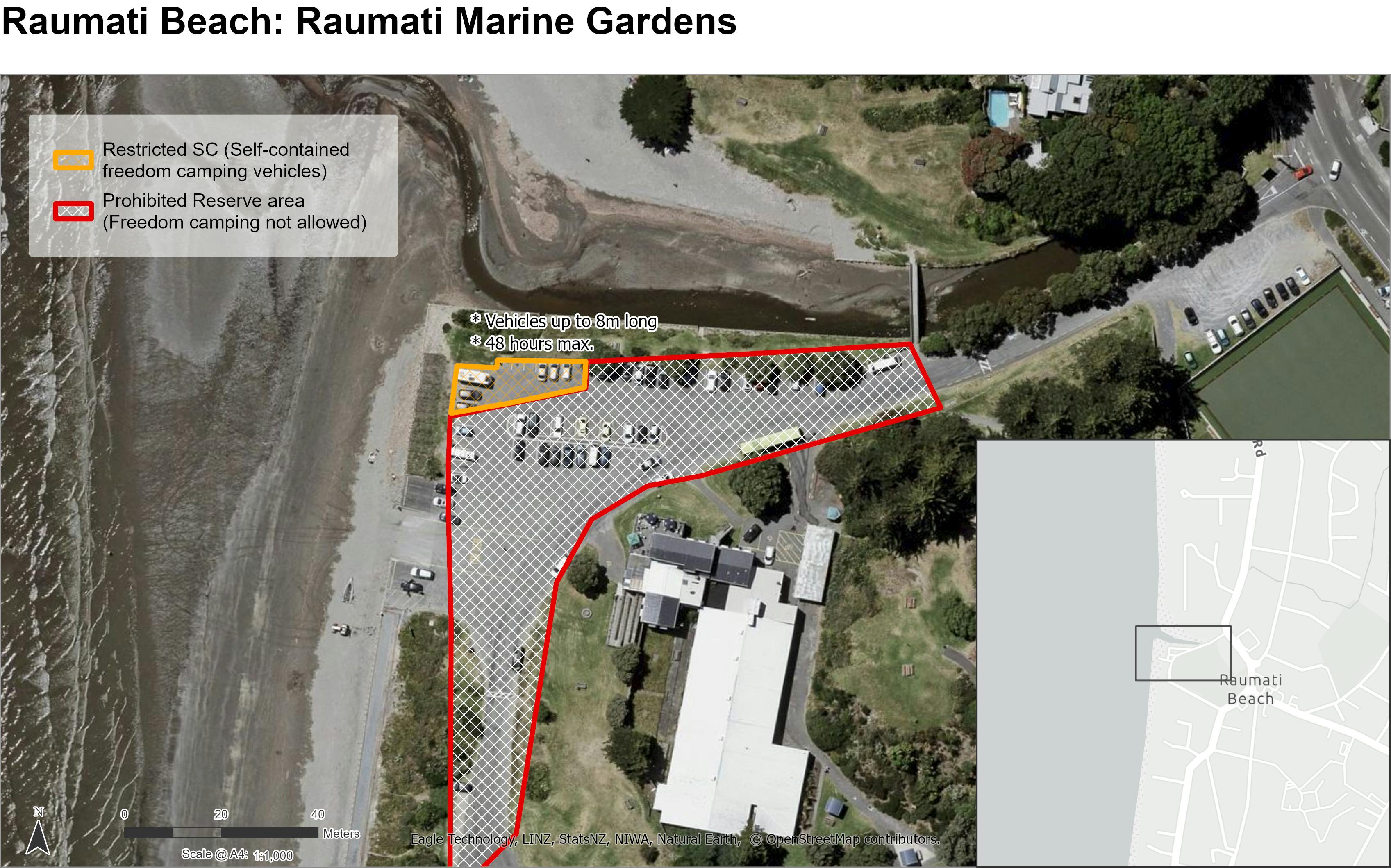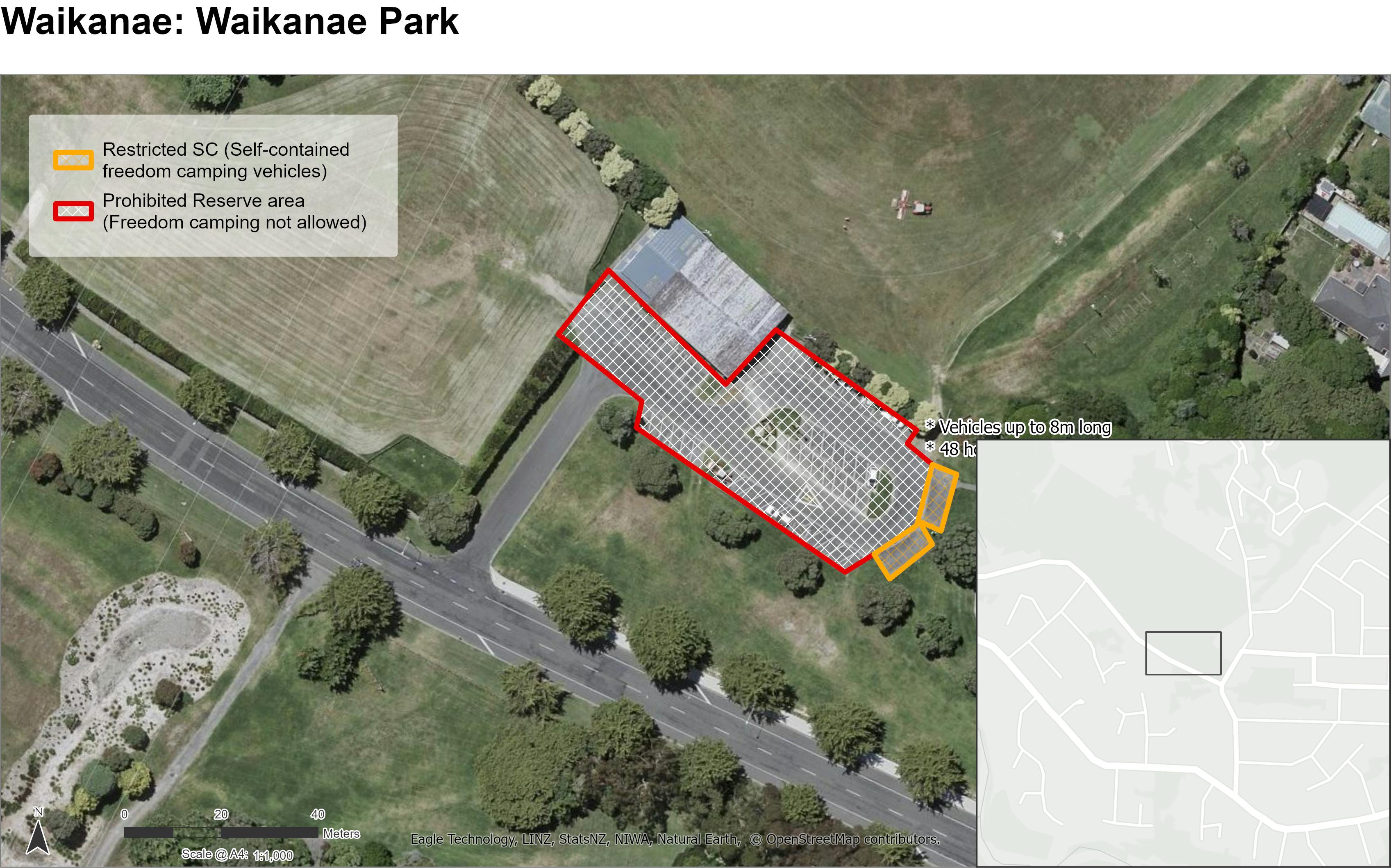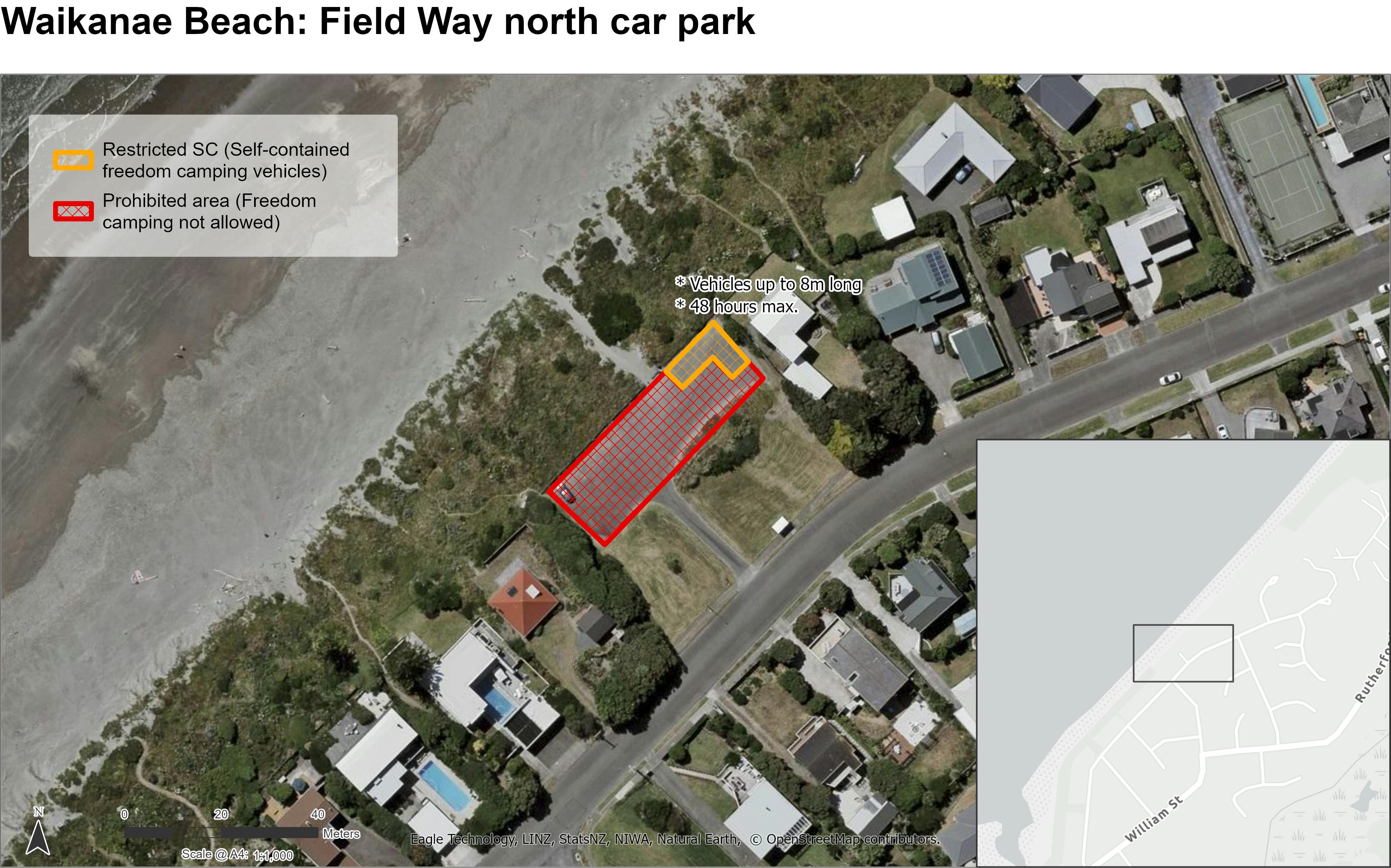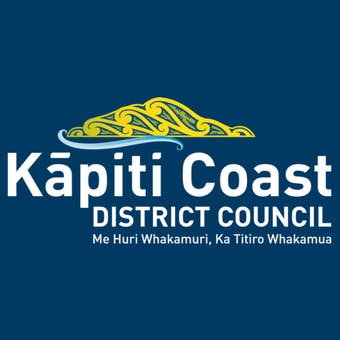Freedom Camping Bylaw
Consultation has concluded

Thank you to everyone who made a submission on our draft Freedom Camping Bylaw. We value the insights and time you put into the submissions. On 20 May, Council held hearings where they heard 14 presentations from the 185 submissions we received.
While it was hopeful the Freedom Camping Bylaw would quickly progress to Council for a decision, we entered the local body election period. The making of the Freedom Camping Bylaw has been deferred until early–mid 2026. In the meantime, the Freedom Camping Act continues to apply to the Kāpiti Coast District in governing freedom camping.
We’re reviewing how we manage freedom camping on the Kāpiti Coast to reflect recent changes to central government legislation and improve the experience for local communities and visitors. We needed your feedback on the options we’re proposing.
The Freedom Camping Act was amended in 2023. The Act allows freedom camping on Council land in self-contained vehicles and requires councils to identify the areas of their land where self-contained vehicles will be prohibited or restricted. Restricted sites still allow freedom camping but with conditions, for example limiting the length of stay and number of vehicles per site.
Our current Freedom Camping Policy 2012 outlines where freedom camping is permitted in the district, but it doesn't allow for enforcement. Freedom camping is an important part of our tourism economy – visitors who camp freely tend to stay longer and explore more of the region, contributing to local businesses. However, some campers stay beyond time limits, use non-self-contained vehicles, or camp outside designated areas. In recent years, we’ve taken an educational approach to managing this through our Sustainable Camping Ambassadors, but without enforcement, challenges remain.
We’re proposing a Freedom Camping Bylaw that would better align with the Freedom Camping Act and strike a balance between accommodating freedom camping and encouraging tourism and protecting the Kāpiti Coast’s physical, cultural and social environment.
The Bylaw would:
- clearly define areas where freedom camping is restricted or prohibited
- ensure a better balance between tourism growth and community wellbeing
- give Council officers the ability to issue infringements when rules aren't followed.
Your options and your feedback
We needed your input to get this right. Our options are to:  View the proposed 11 restricted sites
View the proposed 11 restricted sites
- Continue to manage freedom camping with a Freedom Camping Policy
- Adopt the draft Freedom Camping Bylaw
We've undertaken an assessment of the district to identify and define areas where freedom camping could be restricted or prohibited under the Act. As a result, we're proposing 11 sites to be defined as restricted. This would increase the total number of campervan parking spaces from 24 to 36, and with maximum stays of 48 hours at each.
Please note: Under the Freedom Camping Act, freedom camping can only be restricted or prohibited if it is necessary to:
- protect the area
- protect the health and safety of people who may visit the area or
- protect access to the area.
Parks and reserves: Only three reserves have been included in the areas to be restricted. This is because they're areas where freedom camping is currently permitted, and we want to continue their use. Our maps don't identify other reserve land where freedom camping is currently not permitted. Freedom camping in our reserves will be assessed as part of a Reserves Management Plan review.
We wanted to know if you agreed with our proposal to adopt a Freedom Camping Bylaw, and whether we’ve got the restricted sites and things like the allowed duration of stay and number of available parks right.
How you could have your say
Read these documents to understand the options:
- Statement of Proposal
- Proposed Freedom Camping Bylaw including maps of the restricted and prohibited sites
- Site assessments for freedom camping
You could provide your feedback by:
- Submiting your feedback online
- Printing the survey and drop it into our service centres or libraries
- Emailing your survey to HaveYourSay@kapiticoast.govt.nz
- Posting your thoughts to Freedom Camping Feedback, Private Bag 60601, Paraparaumu 5254
Feedback closed at 5pm, Friday 2 May.
Need more info? See our frequently asked questions and other useful documents. You can also ask a question below.
What happens next?
Your feedback will help inform our decisions on our freedom camping rules and whether we update the policy or bylaw. Those wishing to speak to their submission did so at our hearing on Tuesday 20 May. We have updated our policy or bylaw and will put this to Council for adoption in early–mid 2026..
Keen to stay updated? Register to join the conversation, and sign up for Everything Kāpiti, to get the latest on what's happening across our district straight to your inbox – including events, grant funding opportunities for youth, and other ways you can get involved.


